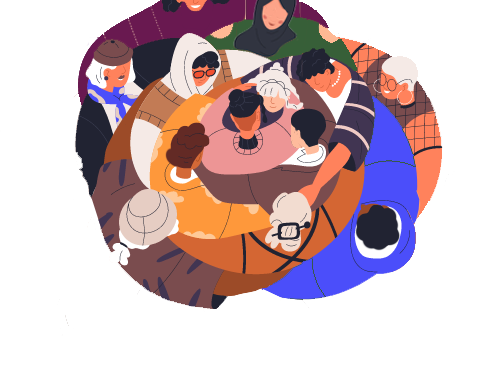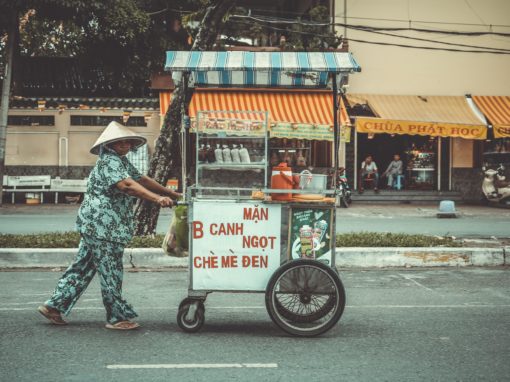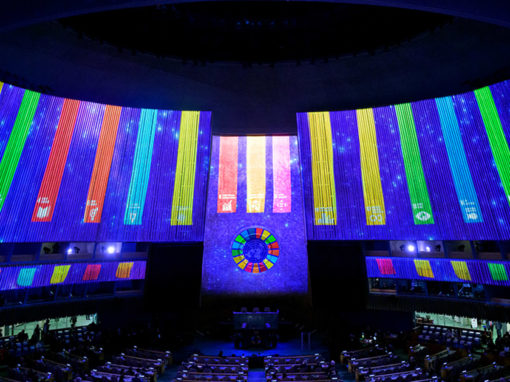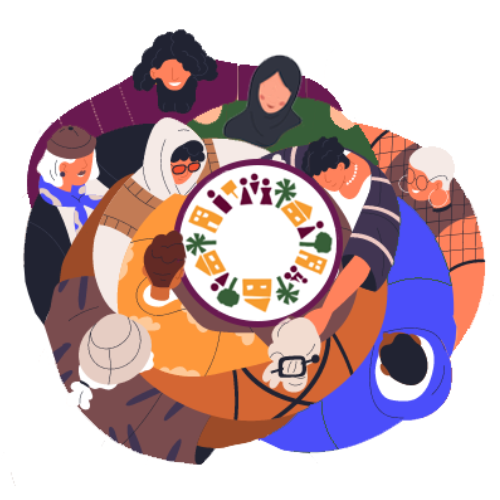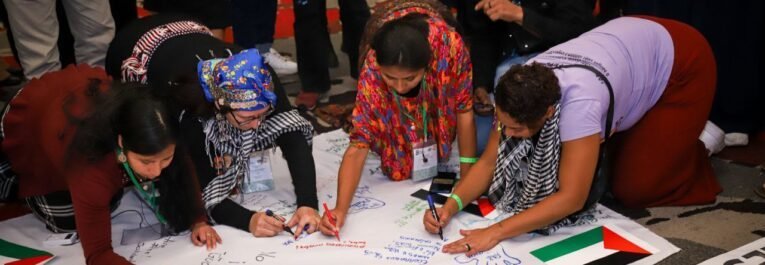Résumé
Le rapport d’ActionAid intitulé« Whose City » (À qui est la ville?) constate que les femmes continuent à être confrontées à des actes de violence, de harcèlement et d’intimidation dans un grand nombre de pays, et qu’elles sont constamment exposées à des menaces : Bangladesh, Brésil, République Démocratique du Congo (RDC), Jordanie, Libéria, Népal, Nigéria, Sénégal, Afrique du Sud et Zimbabwe.
Report de ActionAid[i]
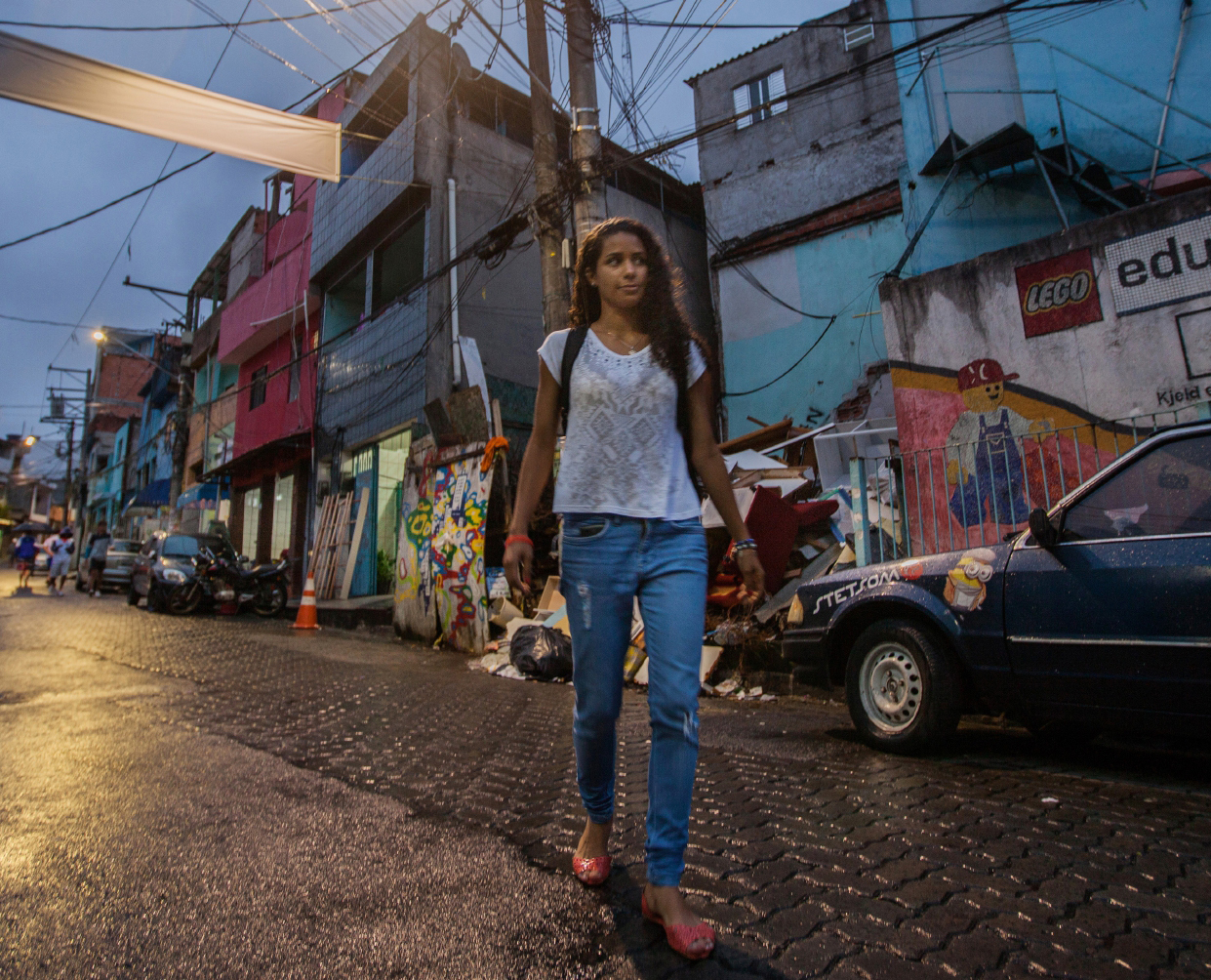
The New Urban Agenda[ii] agreed at the United Nations Conference on Housing and Sustainable Urban Development (also called Habitat III) in Quito, October 2016, guides nation states, city and regional authorities and others in their thinking about cities, urbanisation and sustainable development. It commits to making real the concept of ‘cities for all’ (often referred to as the ‘right to the city’), bringing together a set of already internationally recognised rights to ensure that inhabitants enjoy a just and sustainable city, which is essential for a high quality of life. Women’s participation is essential for building cities that are enjoyed fairly and equally by all who live in and access them. It is fundamental that their voices are heard and their experiences considered when shaping the city.
ActionAid and its partners have been working to safeguard women’s right to the city for many years, primarily through the Safe Cities for Women campaign, to address violence against women in urban public spaces. It is widely acknowledged that, overall, governments across the world still fail to prioritise women’s rights by continuing to pursue a neoliberal model of development which, among other things, suppresses regulation and the equal distribution of wealth; promotes the privatisation of public services and exploitation of women’s paid and unpaid labour; and ultimately entrenches gender inequality. Urban planning is often gender-blind, failing to recognise or respond to the different ways in which women and men experience urban spaces and their differing practical and long-term needs.
This report presents the results of an evaluation of women’s safety in urban spaces in a broad selection of countries in which ActionAid works: Bangladesh, Brazil, the Democratic Republic of Congo (DRC), Jordan, Liberia, Nepal, Nigeria, Senegal, South Africa and Zimbabwe. A scorecard method is used to score countries based on the overall rate of physical and sexual violence women face in their lifetimes; the existence of national legal frameworks and resourced plans of action to address gender-based violence; and whether or not there is a gender analysis and perspective applied in urban planning – particularly in the design and planning ofpublic transport. This scorecard does not claim to be a fully comprehensive analysis of all factors impacting on women’s safety in cities. For example, rather than look at all public services available, it focuses on public transport. However, it provides a first glimpse of the challenges, and touches on some key issues, particularly governments’ capacity to address women’s safety.
The report aims to help governments better understand where they may be falling short, and to identify and prioritise actions to improve urban safety. It shows that women still do not fully enjoy their right to the city despite government commitments to end gender based violence using various rights instruments, national legislation, policy frameworks, or the setting up of national central policy-making and coordination structures for mainstreaming gender equality. Across the board, women overwhelmingly still face and are constantly under the threat of violence, harassment and intimidation. In Nepal, nine in 10 women interviewed face sexual harassment in public places and the younger they are the more they are at risk[iii]. In Brazil, a woman is raped every 11 minutes and the situation is deteriorating as the country experiences a rapid roll-back on its women’s rights commitments[iv]. In Senegal, deep-rooted patriarchal beliefs continue to influence legal and policy frameworks such that women’s rights go unprotected[v]. In Jordan, there has been a major debate recently about amendments to the penal code that sought to maintain immunity from prosecution for rapists if they marry their victims aged between 15 and 18 years[vi].
Advocating for state authorities to be accountable for the delivery of accessible, affordable, quality gender responsive public services has been at the heart of the Safe Cities for Women work. Women’s safety and enjoyment of their right to the city depend on proper road and lighting infrastructure; public transport; water and sanitation, including public toilets; policing; crime prevention; and violence-response services such as shelters, rape crisis centres and legal aid. States violate human rights principles and entrench gender inequality (including violence against women) when they fail to deliver universal public services. This evaluation focuses on public transport – recognising that safe public transport systems are a necessary prerequisite for women and girls to be able to exercise their right to freedom of movement and enjoy and use their cities’ services without the threat of exclusion, sexual violence or harassment. Yet inappropriate design, unaffordability, inaccessibility and lack of safety continue to characterise public transport in many cities[vii].
Although we highlight some successful and innovative ways in which women’s rights, social justice movements and civil society organisations influence and work with governments to improve women’s urban safety, these best-practice cases are exceptions rather than the rule. Progress is held back by a lack of sustained implementation and resources.
This report calls for governments to take several measures, including:
- collecting detailed data on violence against women in public spaces and using this data to design prevention and response programmes related to urban safety;
- ensuring that women’s groups and survivors of violence participate throughout all stages and processes of designing, monitoring and auditing such programmes;
- addressing the persistent institutional sexism across key implementing bodies, such as the police force, judiciary and the public sector as a whole;
- ensuring that all public services are funded, universal, accessible and gender responsive, including services that prevent and respond to violence against women; and
- implementing progressive taxation policies to ensure that public services are adequately financed, and removing any incentives corporates might have that weaken the respect for and protection of women’s rights.
(This article is a the Executive Summary’s reproduction of the report Whose City?)
* Download the report here.
[i] ActionAid is an international organisation, working with over 15 million people in 45 countries for a world free from poverty and injustice.
[ii] The New Urban Agenda is an urbanization action blueprint for governments, the UN, civil society, communities, the private sector, professionals, the scientific and academic community, in support of the 2030 Agenda on Sustainable Development; especially SDG 11 – making cities inclusive, safe, resilient and sustainable. Available athttp://nua.unhabitat.org/
[iii] ActionAid (2015), Women and the City III: A Summary of Baseline Data on Violence Against Women and Girls in Seven Countries, ActionAid: Johannesburg, p.34. Available at: http://www.actionaid.org/sites/files/actionaid/women_and_the_city_iii.pdf [accessed: 1 November 2017].
[iv] Buenos Aires Herald.com (2016), At Least One Rape Every 11 Minutes in Brazil. Available at: http://www.buenosairesherald.com/article/215282/at-least-one-rape-every-11- minutes-in-brazil [accessed: 1 November 2017].
[v] Conversations with ActionAid Senegal, August 2017.
[vi] Husseini, R. (2015), ‘Projected Penal Code Amendment Scraps Article Pardoning Rapists Who Marry Victims’, Jordan Times. Available at: http://www.jordantimes.com/ news/local/projected-penal-code-amendment-scraps-article-pardoning-rapists-who-marry-victims%E2%80%99 [accessed: 2 November 2017].
[vii] ActionAid (2016), Freedom to Move: Women’s Experience of Urban Public Transport in Bangladesh, Brazil and Nigeria, and How Lost Tax Revenues Can Pay to Improve It. Available at: http://www.actionaid.org/sites/files/actionaid/178619_2785.pdf [accessed 10 November 2017].


